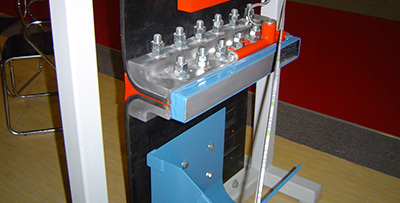News Center
Hezi technology focuses on the research and development of "rapid seamless conveyor belt joint sleeve" innovative technology project

NEWS CENTER

News Details
Understanding Steel Core Conveyor Belt Sources for the Chemical Industry
Release time:
2025-05-17
In the chemical industry, the choice of conveyor belts can significantly impact production efficiency and safety. One of the standout options available is the steel core conveyor belt, which is designed to provide exceptional durability and strength. These belts are primarily composed of a steel reinforcement layer, making them well-suited for heavy-duty applications in challenging environments. T
In the chemical industry, the choice of conveyor belts can significantly impact production efficiency and safety. One of the standout options available is the steel core conveyor belt, which is designed to provide exceptional durability and strength. These belts are primarily composed of a steel reinforcement layer, making them well-suited for heavy-duty applications in challenging environments.
The steel core conveyor belt's primary advantage lies in its ability to handle heavy loads and withstand high temperatures, making it an excellent choice for transporting materials in chemical plants. This type of belt can effectively manage the weight and impact associated with bulk materials, such as chemicals, powders, and granules. Additionally, the steel reinforcement provides resistance to tearing and wear, ensuring a longer lifespan compared to conventional rubber belts.
When considering sourcing options for steel core conveyor belts, it's essential to evaluate various factors to ensure you select the best fit for your specific needs. One critical aspect is the belt's specifications, including its width, thickness, and tensile strength. These factors will determine the belt's capacity to handle the intended load and the environment in which it will operate. Furthermore, understanding the types of materials being transported can help in selecting a belt with the appropriate chemical resistance.
Another important consideration when sourcing steel core conveyor belts is the manufacturing process. The quality of the materials used and the production techniques employed can significantly influence the performance and reliability of the belt. It's advisable to source from reputable manufacturers that adhere to strict quality control standards and can provide documentation of their manufacturing processes.
In addition to performance characteristics, the installation and maintenance of steel core conveyor belts also warrant attention. Proper installation is essential to ensure optimal operation and reduce the risk of premature wear. Regular maintenance, including monitoring for signs of damage or wear, can extend the life of the belt and enhance its reliability.
In summary, steel core conveyor belts represent a robust solution for the chemical industry, offering strength and durability that can handle the rigors of transporting heavy and often hazardous materials. By understanding the sourcing options and critical features to consider, businesses can make informed decisions that enhance their operational efficiency and safety. As you explore steel core conveyor belt sources, prioritize quality and reliability to ensure the best outcome for your manufacturing processes.
The steel core conveyor belt's primary advantage lies in its ability to handle heavy loads and withstand high temperatures, making it an excellent choice for transporting materials in chemical plants. This type of belt can effectively manage the weight and impact associated with bulk materials, such as chemicals, powders, and granules. Additionally, the steel reinforcement provides resistance to tearing and wear, ensuring a longer lifespan compared to conventional rubber belts.
When considering sourcing options for steel core conveyor belts, it's essential to evaluate various factors to ensure you select the best fit for your specific needs. One critical aspect is the belt's specifications, including its width, thickness, and tensile strength. These factors will determine the belt's capacity to handle the intended load and the environment in which it will operate. Furthermore, understanding the types of materials being transported can help in selecting a belt with the appropriate chemical resistance.
Another important consideration when sourcing steel core conveyor belts is the manufacturing process. The quality of the materials used and the production techniques employed can significantly influence the performance and reliability of the belt. It's advisable to source from reputable manufacturers that adhere to strict quality control standards and can provide documentation of their manufacturing processes.
In addition to performance characteristics, the installation and maintenance of steel core conveyor belts also warrant attention. Proper installation is essential to ensure optimal operation and reduce the risk of premature wear. Regular maintenance, including monitoring for signs of damage or wear, can extend the life of the belt and enhance its reliability.
In summary, steel core conveyor belts represent a robust solution for the chemical industry, offering strength and durability that can handle the rigors of transporting heavy and often hazardous materials. By understanding the sourcing options and critical features to consider, businesses can make informed decisions that enhance their operational efficiency and safety. As you explore steel core conveyor belt sources, prioritize quality and reliability to ensure the best outcome for your manufacturing processes.

Recommend News





























